Here, from waking up to dinner time, experts and scientists will point out the best time for you to do it, according to the Daily Mail. Of course, this is just information for your reference.

People who wake up at 7:22 a.m. are happier and more refreshed than those who wake up earlier.
Wake up time: 7:22
Research from the University of Westminster (UK) shows that people who wake up at 7:22 a.m. will be happier and more refreshed than those who wake up earlier - from 5:22 a.m. to 7:21 a.m. because waking up early increases the level of stress hormones, leading to bad moods, muscle aches, colds and headaches.
British sleep expert Dr Neil Stanley says waking up around 7am is ideal for most people, but recent research suggests the most important thing for longevity is waking up at the same time every day.
Breakfast: Before 8am
Researchers confirm that the best time to eat breakfast is before 8 o'clock.
A 2023 study found that eating breakfast after 9 a.m. increased the risk of diabetes by 59% compared to eating before 8 a.m.
Mealtimes play an important role in regulating circadian rhythms as well as controlling blood sugar and lipids, explains Anna Palomar Cros, a researcher at the Barcelona Institute for Global Health in Spain.

The best time to have breakfast is before 8 o'clock.
Drink coffee: From 9 am to 2 pm
As soon as you wake up, cortisol levels in your body gradually increase and peak between 8 and 9 o'clock and then gradually decrease.
The caffeine in coffee also has the effect of increasing cortisol levels, so it's best to wait until 9am - when cortisol levels gradually decrease, to enjoy your morning cup of coffee, which will be better!
Caffeine can take up to eight hours to wear off, so avoiding coffee after 2 p.m. will have less of an impact on your sleep.
Exercise: 6:30 - 8:30 or 6:00 - 8:00 p.m.
People usually exercise early in the morning or in the evening. This is good because American research has found that women who exercise from 6:30 to 8:30 help reduce blood pressure and belly fat. And exercising from 18 to 20 hours helps build muscle and increase endurance.
For men, evening exercise is most effective in reducing blood pressure and burning fat.
Make important decisions: 11 - 12 hours
Scientists say that even making decisions requires timing! And the 11-12 hour time frame is ideal.
Professor Russell Foster, a neuroscientist at Oxford University (UK), said that people's cognitive abilities and reaction times peak between 11 and 12 o'clock, according to Daily Mail.
Nap: 12 - 16 hours
The best time to take a nap is between 12 and 16 o'clock.
Japanese research shows that napping for just 20 minutes at 12:20 pm can prevent an afternoon energy slump. Research also shows that napping can help older adults reduce brain shrinkage.
Dinner: 7-8pm
7-8pm is the optimal time to have dinner.
Eating later can increase the risk of weight gain and diabetes, Spanish scientists have found that eating dinner within 2 hours of going to bed increases the risk of obesity by 5 times. Dr. Stanley notes: It is best to stop eating at least 3 hours before going to bed.
Go to bed: 10 - 11 pm
Research published in the European Heart Journal medical journal says that going to bed between 10 and 11 p.m. is best because it can reduce the risk of heart disease and blood circulation.
Conversely, going to bed after 24 hours increases the risk of heart attack and stroke by 25%.
According to many studies, it is best to sleep 7 hours a night. Research has long found that sleeping 6-8 hours a day helps reduce illness and live longer.
However, research also confirms that following a regular sleep schedule is even better than sleeping a lot, according to Daily Mail.
Source link




![[Photo] Hanoi morning of October 1: Prolonged flooding, people wade to work](https://vphoto.vietnam.vn/thumb/1200x675/vietnam/resource/IMAGE/2025/10/1/189be28938e3493fa26b2938efa2059e)




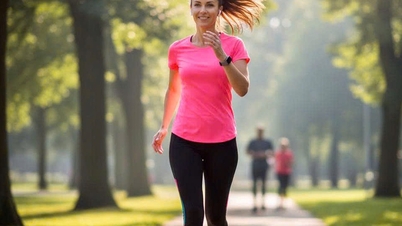
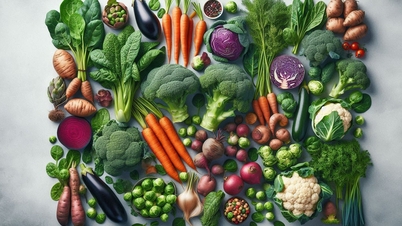






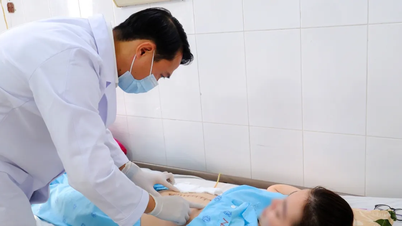



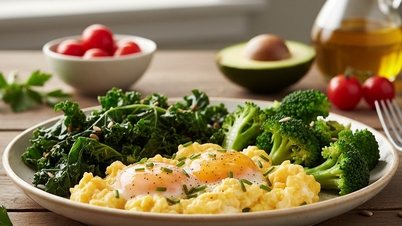

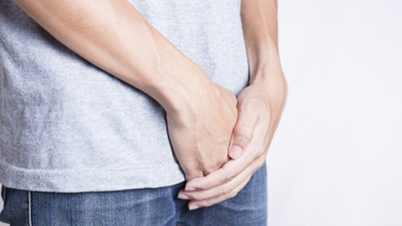







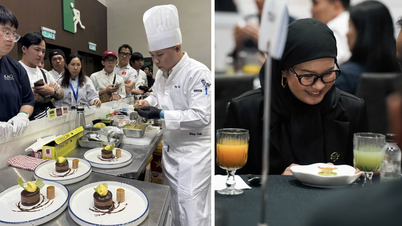



![[Photo] Panorama of the cable-stayed bridge, the final bottleneck of the Ben Luc-Long Thanh expressway](https://vphoto.vietnam.vn/thumb/1200x675/vietnam/resource/IMAGE/2025/9/30/391fdf21025541d6b2f092e49a17243f)
![[Photo] The 1st Congress of Phu Tho Provincial Party Committee, term 2025-2030](https://vphoto.vietnam.vn/thumb/1200x675/vietnam/resource/IMAGE/2025/9/30/1507da06216649bba8a1ce6251816820)
![[Photo] President Luong Cuong receives President of the Cuban National Assembly Esteban Lazo Hernandez](https://vphoto.vietnam.vn/thumb/1200x675/vietnam/resource/IMAGE/2025/9/30/4d38932911c24f6ea1936252bd5427fa)







































![[Megastory] A term of creation: An Giang rises from historical imprints](https://vphoto.vietnam.vn/thumb/402x226/vietnam/resource/IMAGE/2025/10/1/2660ab96e53f4270bcc37f8d39c36c78)


















Comment (0)